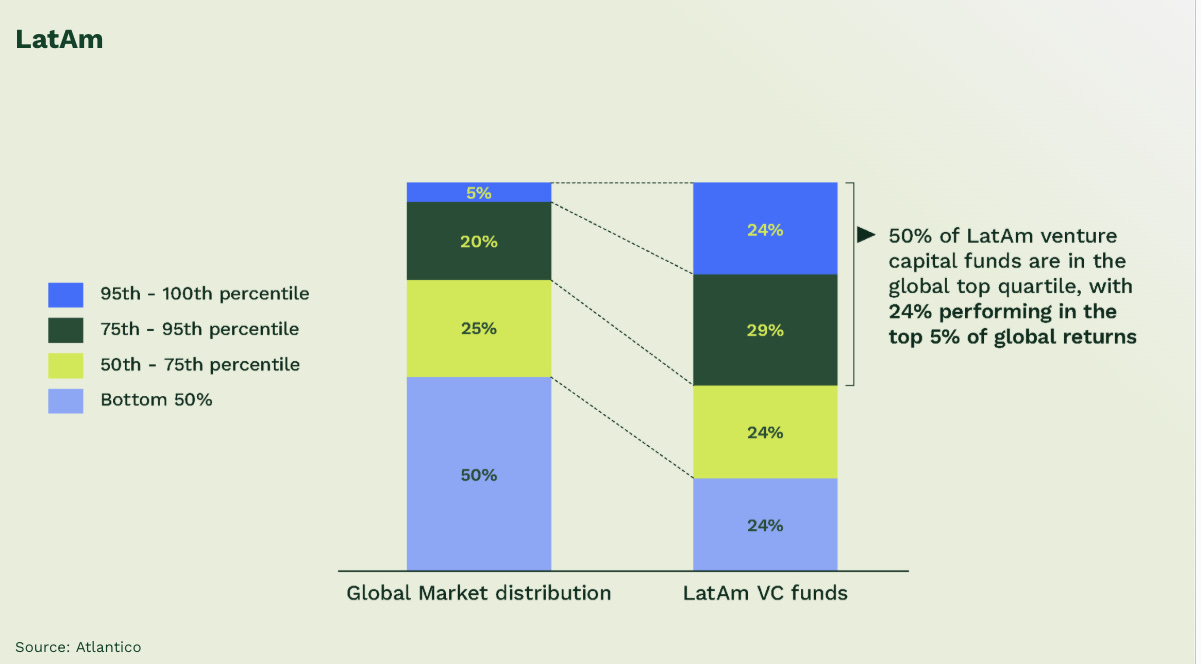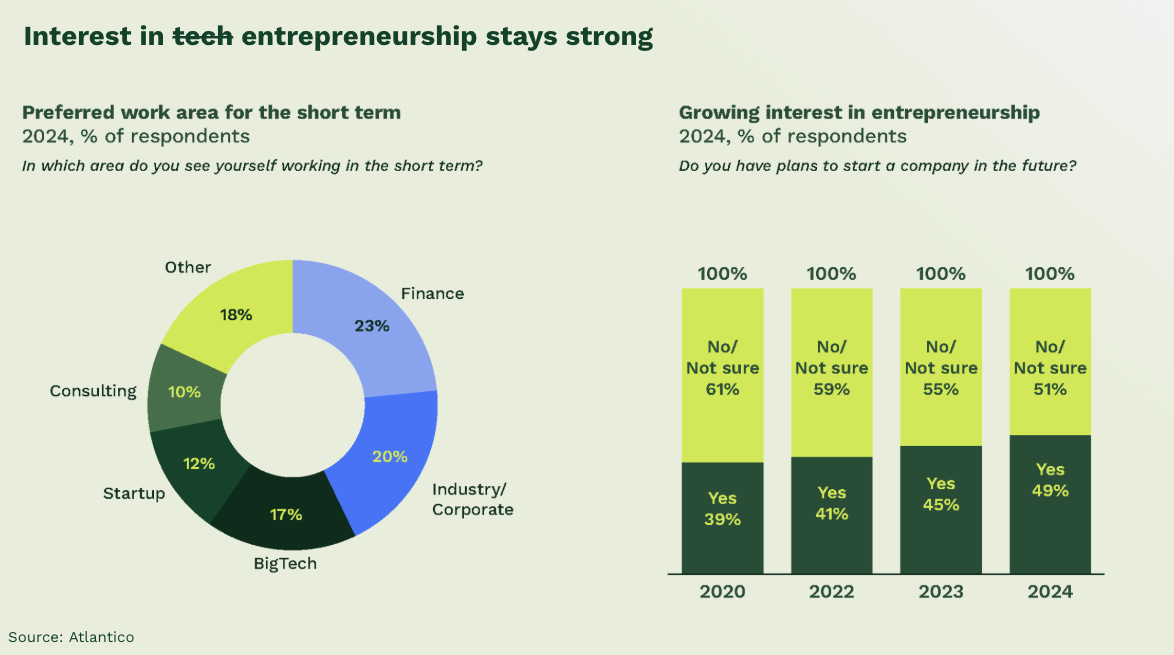A study conducted years ago asked individuals in their final days of life about their biggest regrets. Their responses were primarily categorized into two themes: First, they regretted working too much and spending too little time with their families. Second, they wished they had shown more courage in pursuing ambitious projects. Notably, no one regretted trying and failing.
It’s time for Mexico to embrace this mindset—show more courage and accept failure as part of the process. The conditions for technological innovation in Mexico are ripe: First, oligopolies dominate many industries, resulting in poor, expensive services that are ready for disruption. Second, a new generation of entrepreneurs has emerged, either with experience scaling unicorn companies or successfully exiting their ventures. Third, local venture capital funds have outperformed their peers in other regions of the world. Finally, global economic trends, such as the U.S.-China trade war, have positioned Mexico as a unique beneficiary of foreign investments.

At the grassroots level, the potential is equally compelling. More than 50% of university students aspire to create a startup. Young entrepreneurs no longer dream of becoming the next Carlos Slim; instead, they are inspired by innovators like David Vélez of Nubank or Carlos García of Kavak.

However, we need to talk, we need to address a critical issue: the narrative we tell ourselves about our country and its ecosystem. Consider this example: I recently spoke with a family office decision-maker who took my call during a break from skiing in Vail. He expressed grave concerns about Mexico, claiming it’s in the worst moment in its history and choosing to shift all his investments to the U.S. Ironically, this individual built his fortune in Mexico, doubling his net worth over the past six years—yet he professed no belief in the country’s future.
On the other hand, I spoke with a U.S.-based high-net-worth individual (HNWI) who was curious about nearshoring opportunities in Mexico. He was eager to learn more about the ecosystem and willing to invest in the region.
This contrast in perspectives highlights a destructive narrative many Mexicans hold. A prime example is the reaction to the recent judicial reform proposal. Most businesspeople and journalists haven’t truly read or understood the reform, yet the conversation devolves into dramatic claims about the destruction of the separation of powers. I am neither in favor of nor an expert on the reform, but the premise that it threatens the separation of powers is misleading. Nevertheless, chaos and drama seem to be a cultural addiction—perhaps the result of generations raised on Televisa soap operas.
The issue isn’t whether the reform is flawed (it is), but the way we shift focus. Just months ago, international investors were talking about nearshoring opportunities; now, the conversation is consumed by judicial reform. We’ve allowed the narrative to shift to chaos, harming our own prospects, hara-kiri. Let’s not blame the government alone—media thrives on generating drama, and we fall for it.
Twenty years ago, the ten most valuable companies in the U.S. were dominated by oil and gas. Today, they are nearly all tech companies. Similarly, the most valuable company in Latin America is Mercado Libre, a tech company. Brazil’s most valuable company is Nubank, another tech company. Yet in Mexico, the top ten most valuable companies remain almost unchanged from twenty years ago. Even more striking, almost half of the new entrepreneurs in Mexico are foreigners.
So, why does a U.S.-based HNWI see more potential in Mexico than many Mexicans do? Why do innovators from around the world come to Mexico to build their ventures, while Mexicans remain hesitant? Where is Mexico’s Mercado Libre? If we were on our deathbeds, would we regret our lack of courage? Would we regret the negative story we tell about ourselves?
Mexico, it’s time to rewrite your narrative. You are far better than you believe. Change the way you see yourself, and you’ll unlock the courage to achieve greatness.

